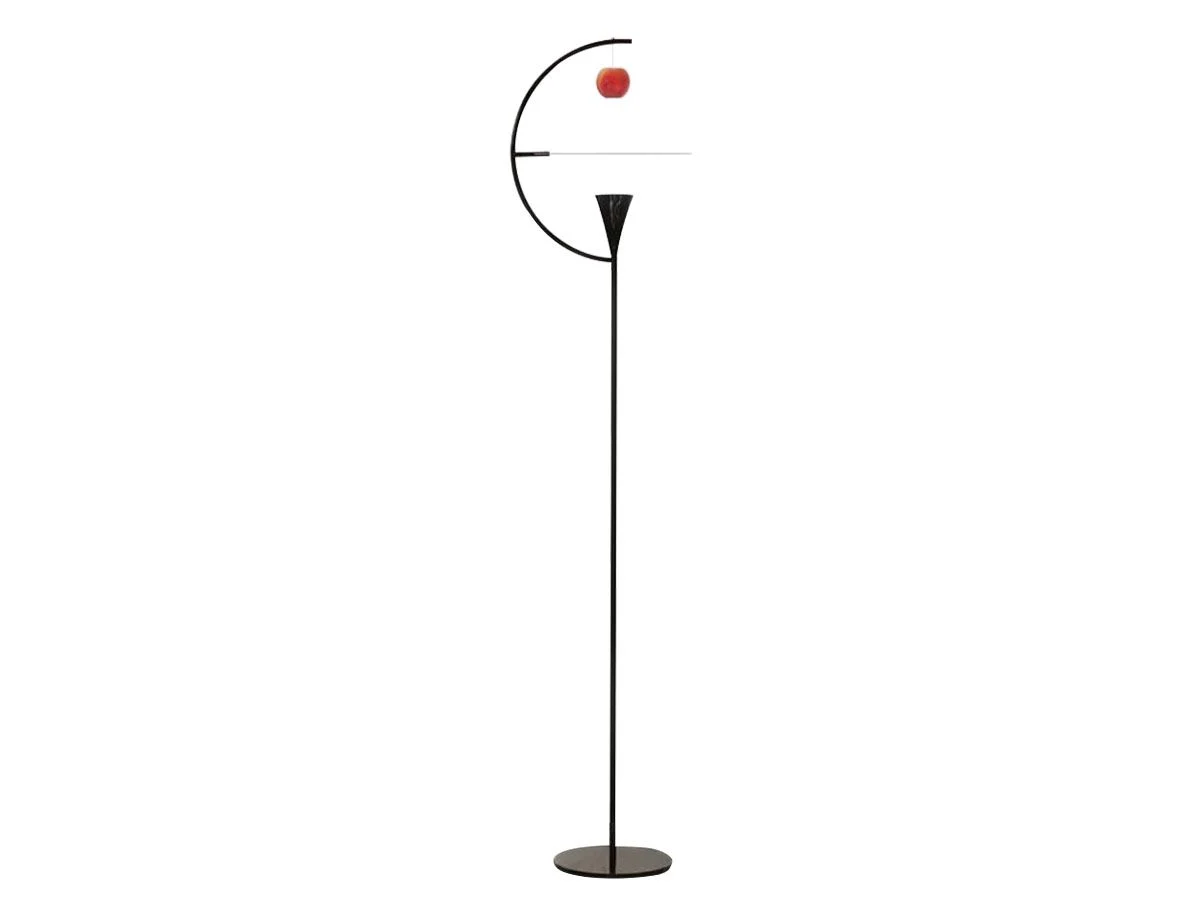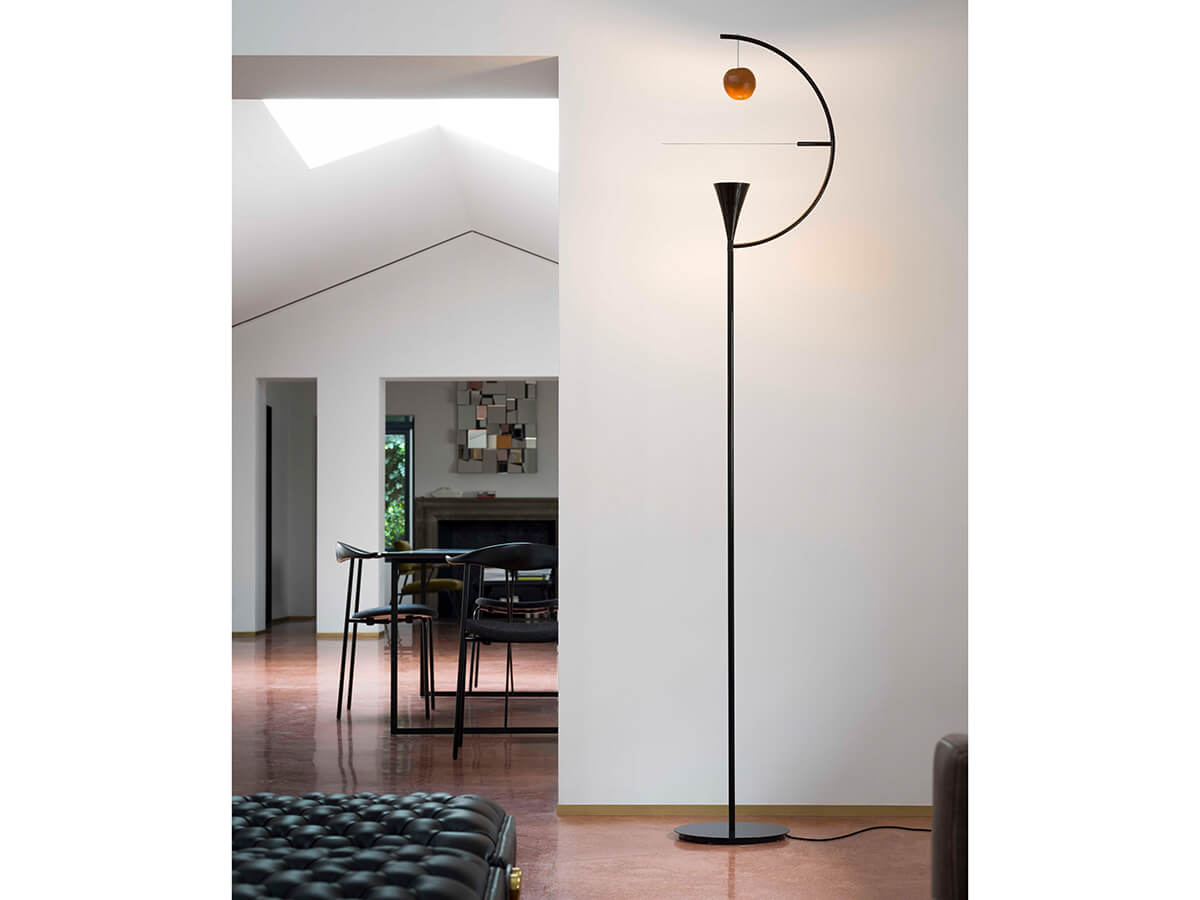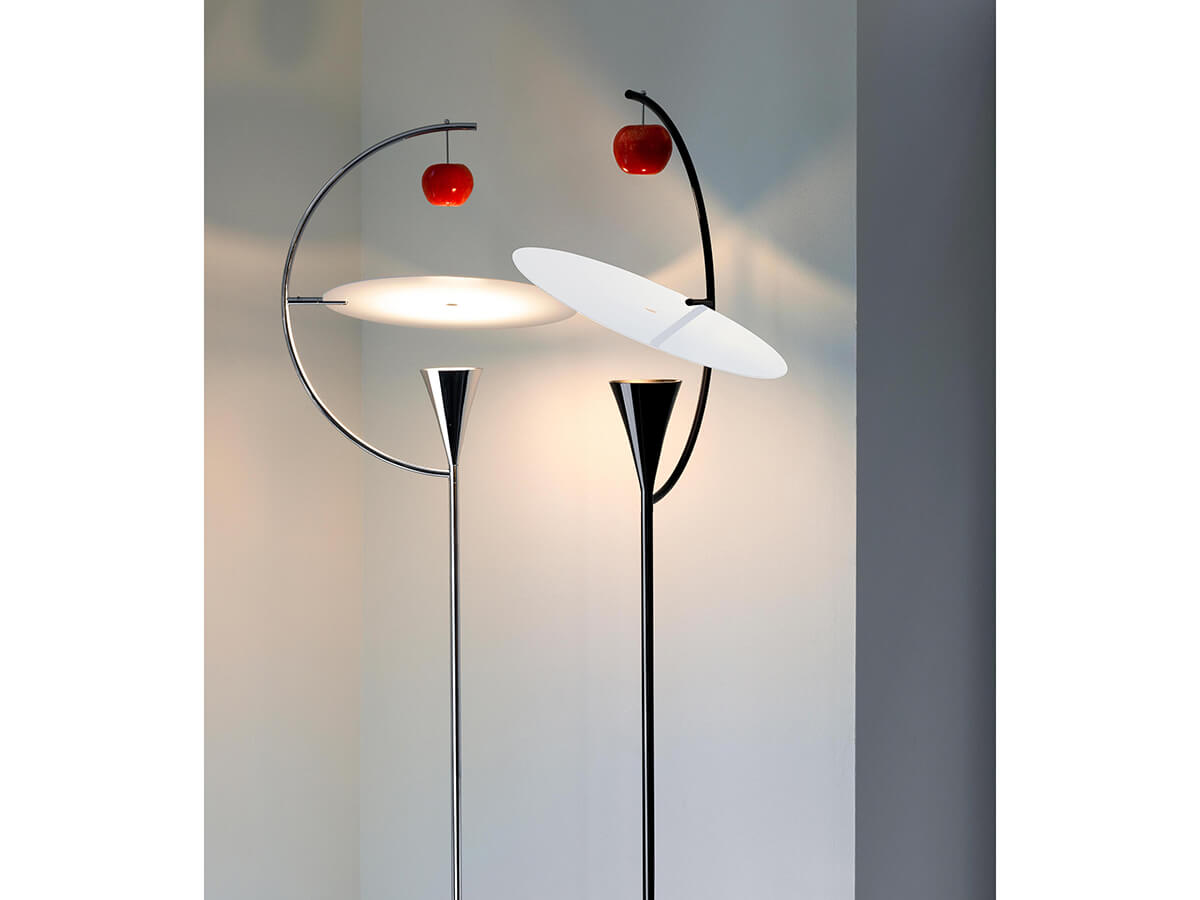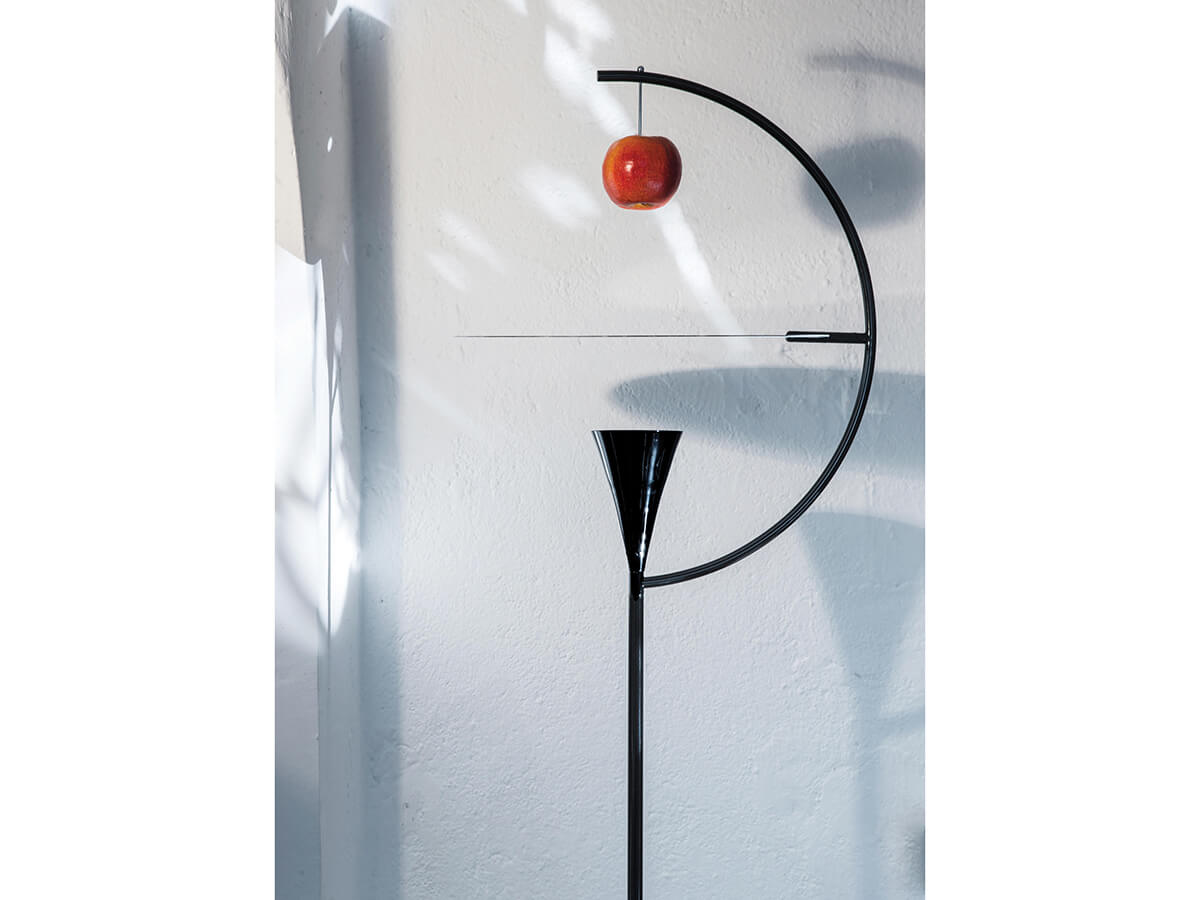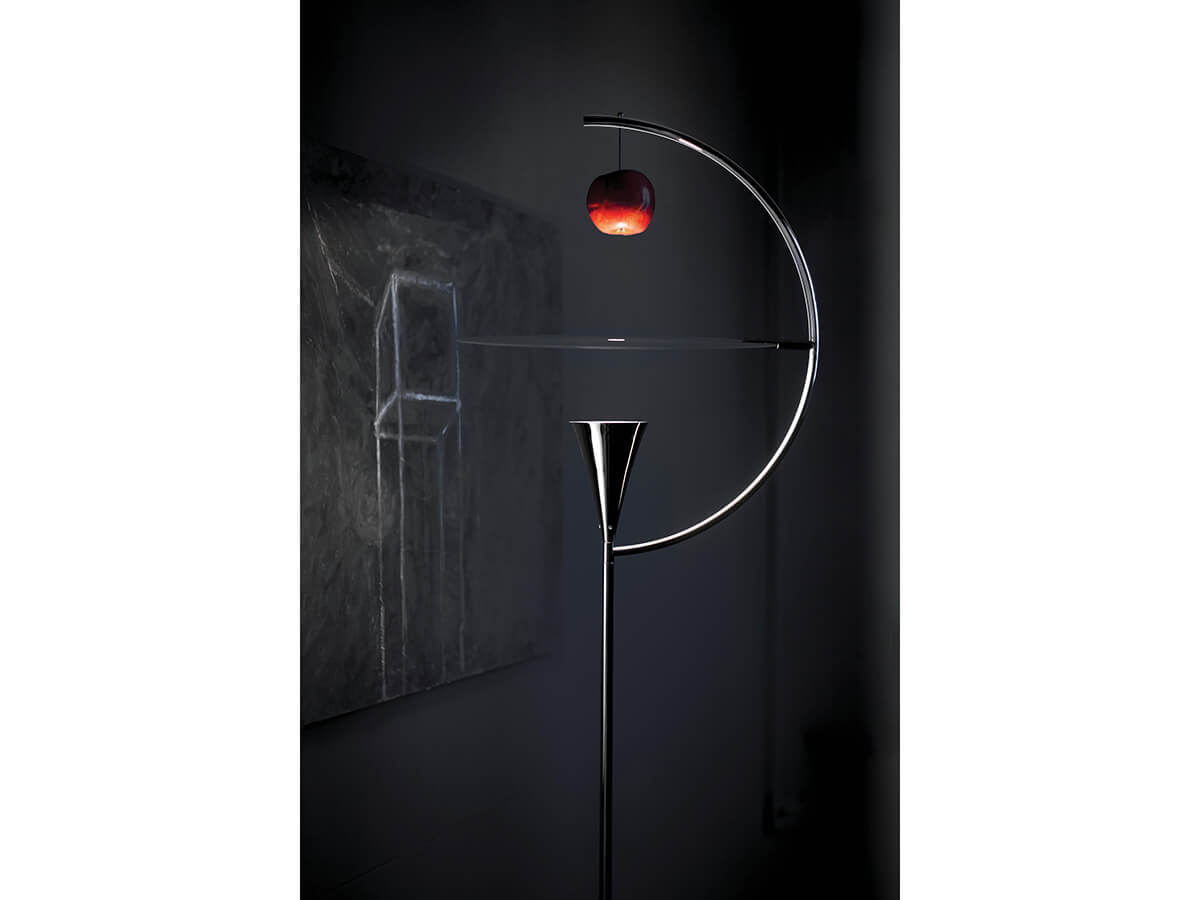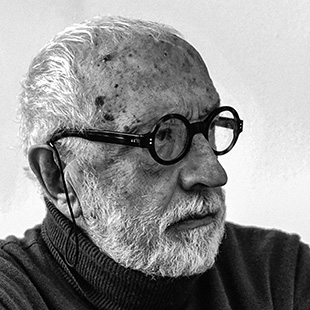Nemo
Newton Floor Lamp
Price € 2.245,00
Playful quotations and refined balance in the forms meet in the Newton floor lamp by Nemo. This product bears the signature of the designer Andrea Branzi, historical leader of the Archizoom Associati collective who in the 1960s gave a strong impulse to the development of radical design, and draws inspiration from the classic anecdote according to which the discovery of the law of universal gravitation was discovered by Isaac Newton following the observation of an apple detached from a branch and falling on his head. In fact, the Newton lamp culminates in a precise reproduction of an apple, held precisely suspended above the LED light source and separated from it by a rotatable white disk acting as a diffuser.
Ø 46 x H.203 cm
Salvioni Design Solutions delivers all around the world. The assembly service is also available by our teams of specialized workers.
Each product is tailor-made for the personal taste and indications of the customer in a customized finish and that is why the production time may vary according to the chosen product.
To discover the full range of services available, visit our delivery page.
Personalize your request
Frame
Select
Black Glossy Lacquer
Chromed
Chromed
Select
Select
Thanks to a cunning politic of re-edition of classics of the past and the collaboration with some of the most prestigious designers of the international panorama, Nemo’s light qualifies as a true author’s light. Founded in the 90s by Franco Cassina and Carlo Forcolini to go alongside Cassina’s production with high qualitative level lamps, thanks to its prestigious birthplace the company has been able to benefit from production rights of the illumination projects by some of the greatest masters of the twentieth century, listing in its catalogue names such as Le Corbusier and Franco Albini.Read more
Designed by
Andrea Branzi
Andrea Branzi (1938- 2023) conducts a lively career as a designer and numerous contributions to design theory. University professor (he presided over the Interior Design study course at the Milan Polytechnic and was one of the founders of the Domus Academy in 1983), prolific author of books on the history of design and critical monographs, also appreciated for his journalistic activity (writes for a long time in the Casabella magazine in the 1970s and later directs the magazines Modo and Domus): Andea Branzi is an all-round intellectual and one of the great cultural animators who contributed to making the Italian design movement fruitful. In the design field, his career is linked to the radical design movement in all its various incarnations, right from the beginning in his native Florence with the foundation in 1966 of the Archizoom Associati group (which also includes his friends Paolo Deganello, Massimo Morozzi and Gilberto Corretti). In those lively years, the group participates in the turmoil that revolutionize Italian design, contesting the theoretical foundations of the prevailing Modernism at the time and proposing extreme furnishings that subverte the traditional concept of "good taste". Many of the most famous furnishings born from this experience, which ends in 1974, are still produced by the Poltronova brand today. At the same time as the end of the history of Archizoom Branzi moves to Milan, where he opens a design studio and devotes himself to organizing exhibitions and cultural events. At the end of the 70s he takes part with some furnishings in the experience of Studio Alchimia and later also gives his contribution to Ettore Sottsass's Memphis. His most famous creation of the 1980s is the Domestic Animals series for Zanotta's Zabro collection, in which he develops the idea that furnishings should be considered almost as pets. In the 90s, he moves towards more reassuring forms and also inaugurates collaborations with large industries such as Cassina or Artemide. His creations can now be found in the catalogs of brands such as Alessi, Nemo, Qeeboo, Riva 1920, Rotalina, Ghidini 1960 and Fasem. He was awarded the Compasso d'Oro twice, in 1979 and in 1987 (the latter in recognition of his career).
Read more
